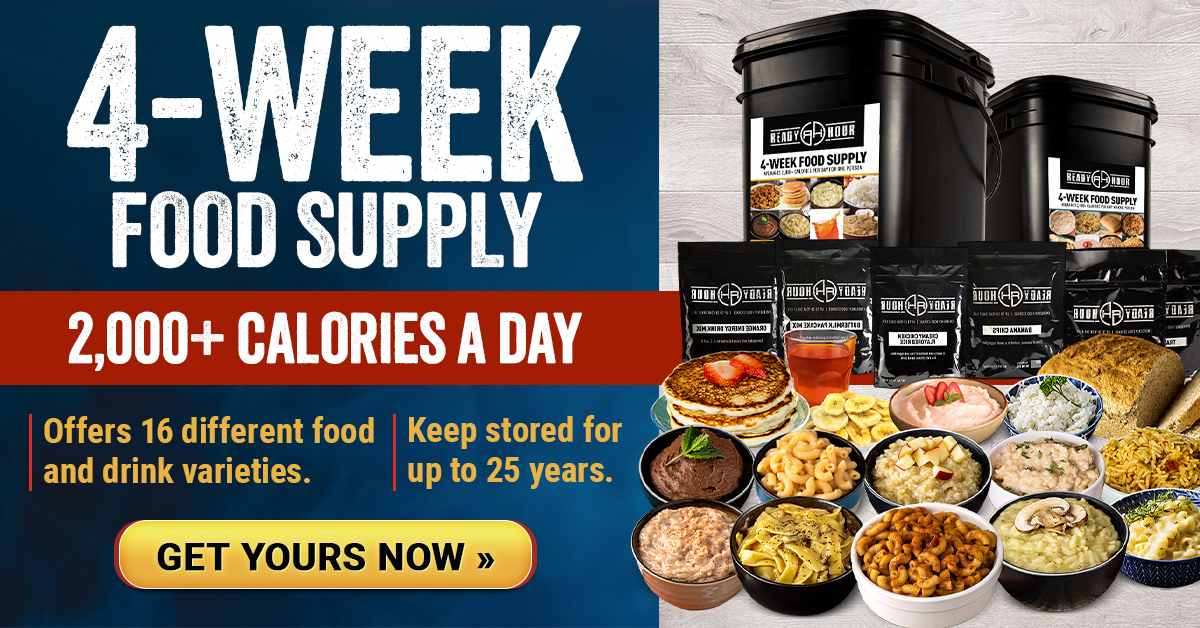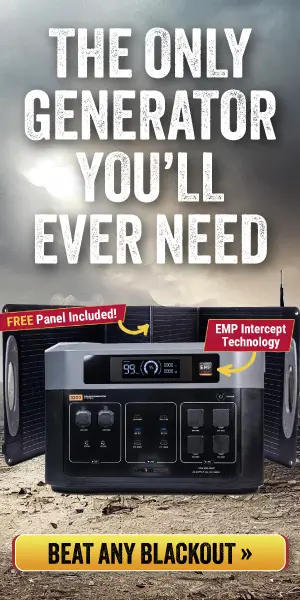(End of the American Dream)—I was very surprised by the results of a survey of preppers that was recently conducted by Fortitude Ranch. The CEO of Fortitude Ranch, Drew Miller, says that preppers are “folks who watch events and read up on threats” and so they have a really good feel for what is really going on out there. Today, millions of Americans are preparing for the collapse of society because we really are facing very serious existential threats which could cause the complex systems that we depend upon on a daily basis to fail at any time. So I was very interested to examine the results of this new survey, because it gives us some insight into what the prepping community is thinking right now.
Only preppers were permitted to participate in the survey, and those that responded were asked to identify the three greatest threats to our society.
More than 50 percent selected “loss of electric grid” as one of the greatest threats. I would not have guessed that this would be the number one response, but without a doubt this is a potential danger that our politicians have neglected. Our sun is becoming increasingly active, and it is just a matter of time before a solar storm does a tremendous amount of damage to the grid. And once the U.S. is involved in a nuclear war, we won’t have a functioning grid at all.
“Economic collapse”, “bioengineered viruses” and “domestic civil war due to divided country” were all selected by more than 40 percent of respondents. Obviously, I was glad to see “economic collapse” so high on the list, because I write about that so much.
And I think that “bioengineered viruses” is something that preppers are very focused on right now because we have just been through the COVID pandemic. We are certainly living during a time when great pestilences will become increasingly common, and so it is imperative for all of us to be prepared for devastating outbreaks of disease.
As for our country being divided, I really do think that 2024 is going to be the most chaotic election year that we have ever seen, and that is extremely unfortunate.
More than 30 percent of respondents identified “terrorist attacks” as one of the greatest threats that we are facing. But no other response even reached the 20 percent threshold.
A “nuclear war arising from Chinese invasion of Taiwan” barely squeaked over the 10 percent mark, and a “nuclear war arising from Ukraine-Russia conflict” was way under 10 percent. Sigh.
If this had been a survey of the general population, I could understand such low numbers. I don’t know what I have to do in order to get people to understand that nuclear war is a very serious threat.
Perhaps after the first nukes are used more Americans will start to wake up. Natural disasters also ranked very low in this survey. Maybe that is because the Yellowstone supervolcano was the only one that was specifically asked about.
Personally, I would have added an eruption of Mt. Rainier, a tsunami on the east coast, a tsunami on the west coast, a historic earthquake along the New Madrid fault zone and “the Big One” in California as potential responses on this survey.
We are far more vulnerable than most people realize, and I am entirely convinced that there will be unprecedented natural disasters in the United States during the years ahead as our very shaky planet becomes even more unstable.
Another major threat that I would have liked to see asked about in this survey is the rapidly growing global food crisis. Last year, 2.4 billion people did not have enough food to eat, and 750 million of them experienced chronic hunger.
And the numbers for this year will inevitably be even worse. In fact, the numbers have been getting steadily worse since 2015.
But because we live in a very wealthy nation that still has lots of food, most Americans are not concerned about the global famine that has already started at all.
I also noticed that “large asteroid strike” was just one notch from the bottom on this survey. Apparently this is something that most preppers are not concerned about at all. But they should be.
It won’t happen tomorrow, but eventually the entire world will become aware of a tremendous threat that is looming in the heavens.
Needless to say, there is a lot of disagreement about what our greatest threats are, but just about everyone understands that something has gone seriously wrong with our society.
And that explains why gun ownership in the U.S. has surged to heights that we have never seen before in the entire modern history of our nation.
According to a new NBC News national poll, a whopping 52 percent of U.S. voters “say they or someone in their household owns a gun”…
More than half of American voters — 52% — say they or someone in their household owns a gun, per the latest NBC News national poll.
That’s the highest share of voters who say that they or someone in their household owns a gun in the history of the NBC News poll, on a question dating back to 1999.
In 2019, 46% of Americans said that they or someone in their household owned a gun, per an NBC News/Wall Street Journal poll. And in February 2013, that share was 42%.
Meanwhile, millions of Americans are stockpiling emergency food and other supplies.
They can feel that great chaos is coming, even if they do not fully grasp all of the specifics of the very serious threats that we are now facing.
If you have not been getting prepared for the collapse of society, I would very strongly encourage you to do so.
What we have been through during the past few years is just the tip of the iceberg, and the clock is ticking…
Sound off about this article on Late Prepper Substack.
Michael’s new book entitled “Chaos” is now available in paperback and for the Kindle on Amazon.com, and you can check out his new Substack newsletter right here.





